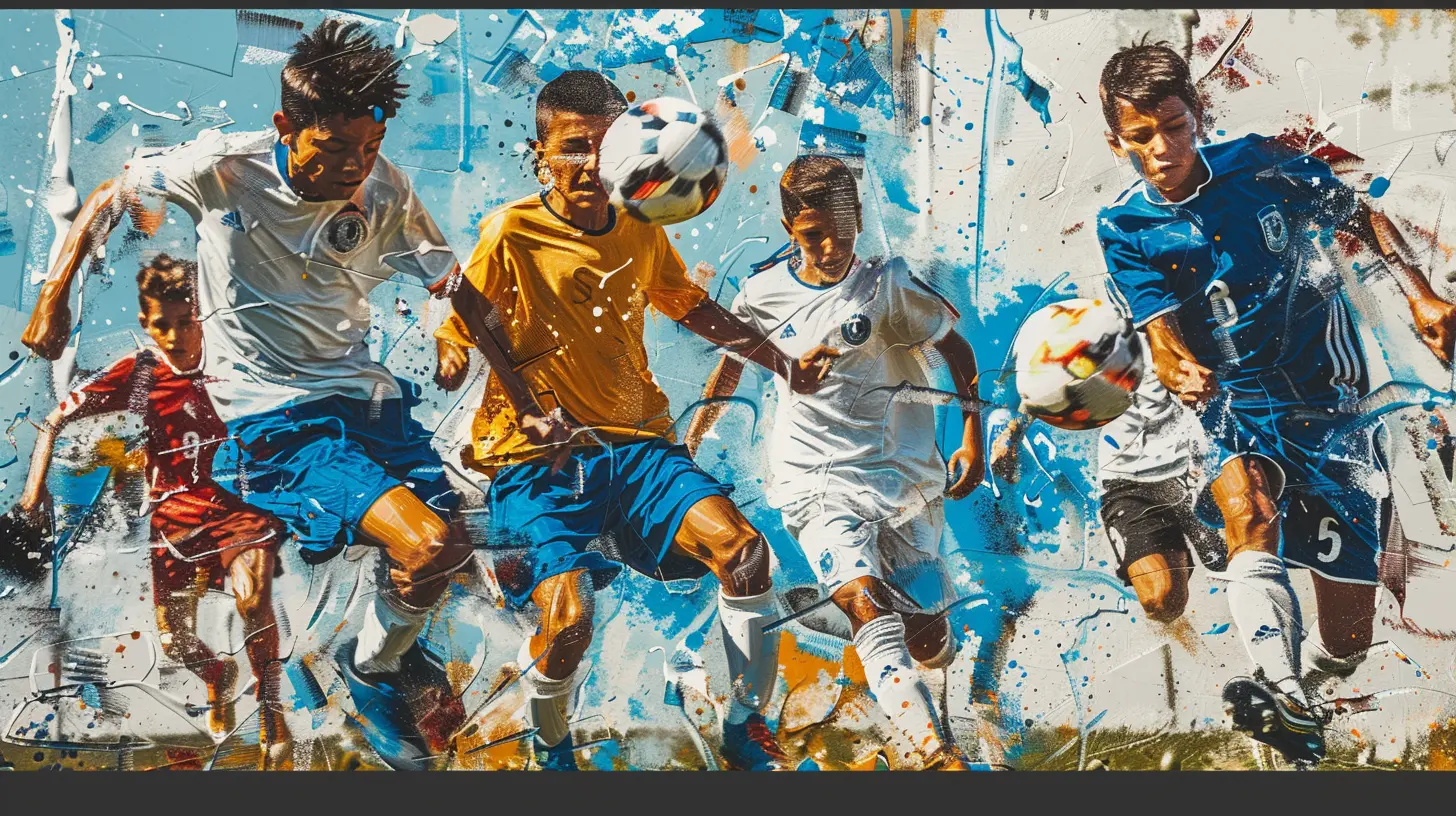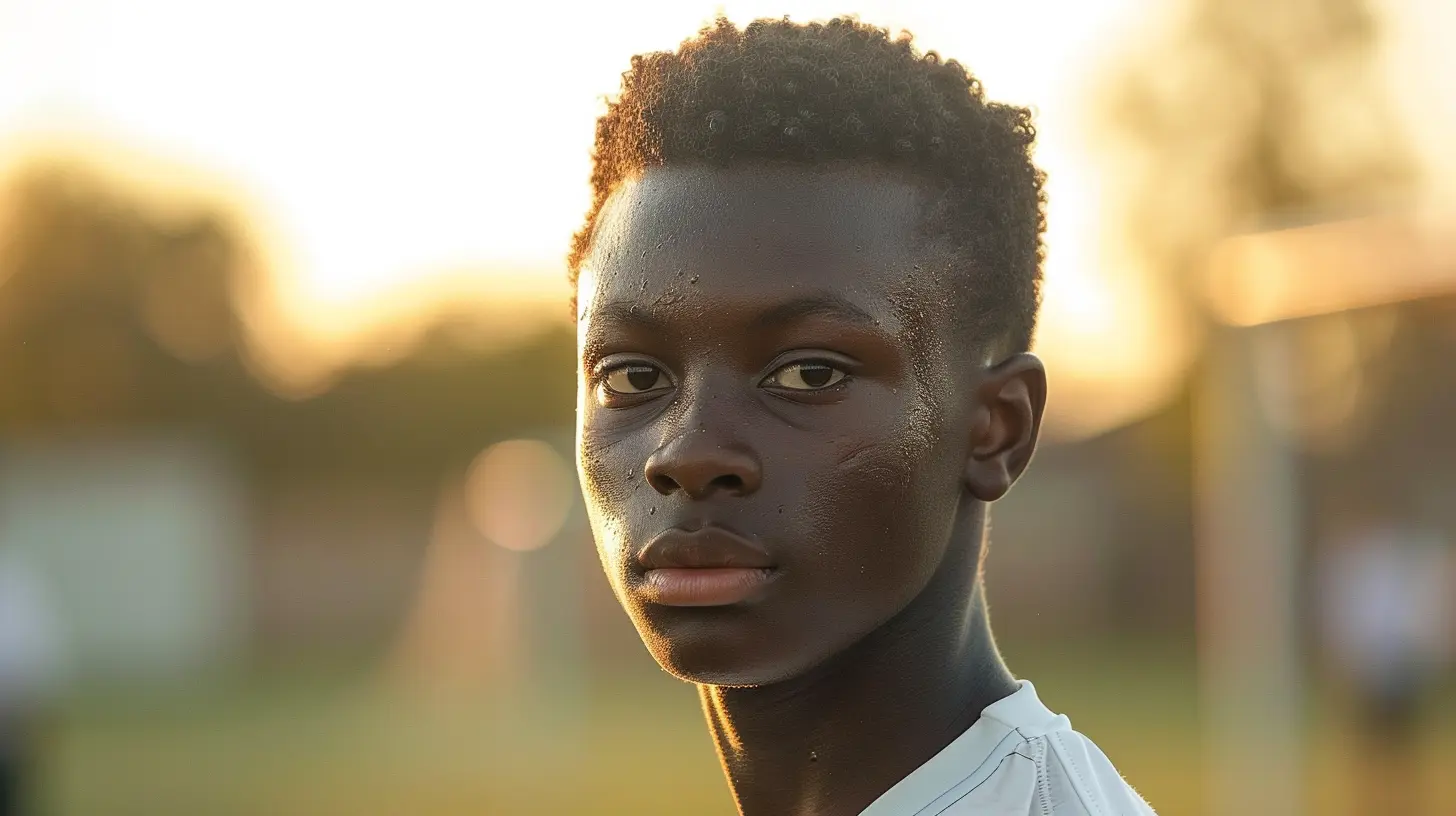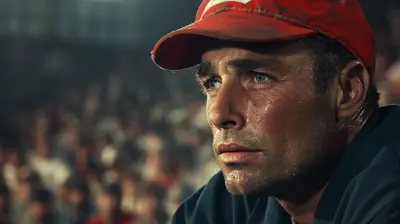The Impact of Youth Academies on Professional Soccer’s Future Stars
9 September 2025
Let’s face it—soccer isn’t just a game; it’s a global obsession. From the chants echoing through stadiums to the raw emotion of a last-minute goal, the sport runs deep in our veins. But have you ever wondered how professional players go from being kids with a dream to superstars on the world stage? The secret sauce? Youth academies.
These academies are the lifeblood of modern soccer. They mold, shape, and sharpen the raw talent of tomorrow’s stars. Without them, half the players lighting up the Champions League probably wouldn’t be where they are today.
In this post, we’ll dive deep into how youth academies impact the future of professional soccer, what makes a great academy stand out, and why they matter more now than ever before.
What Are Youth Academies, Really?
Youth academies in soccer are structured programs where young players train, learn, and live the game. Think of them like Hogwarts for footballers—but instead of casting spells, they're practicing free kicks.These aren’t just weekend camps. Many top academies are full-on developmental ecosystems. Kids as young as six or seven join and stay until they're old enough to break into the big leagues—if they’re good enough, that is.
They get access to top-notch coaching, fitness training, mental conditioning, and even education so they don’t fall behind in school. In short, they’re groomed to be pros from day one.
How Youth Academies Shape Talent
So what’s the magic here? How do academies actually turn wide-eyed kids into professional soccer players?1. Early Technical Development
You know those silky smooth players who seem to have the ball glued to their feet? Chances are, they spent thousands of hours at an academy perfecting those touches.From dribbling to passing, shooting, and spatial awareness, academies drill these skills until they become second nature. Players pick up the fundamentals early, allowing them to express themselves creatively later on.
2. Tactical Intelligence
Soccer isn’t just physical—it’s chess on grass. Youth academies teach tactics early, helping players understand formations, roles, and transitions. They learn not just how to play, but why.This is especially true in places like Spain and Germany, where academies emphasize football IQ just as much as skill.
3. Physical Preparation
Let’s not ignore the raw athleticism of today’s players. Speed, stamina, strength—it’s all part of the package. Academies invest in professional-grade fitness facilities and sports science teams to help kids develop the necessary physical profile.They focus on injury prevention, proper nutrition, recovery routines, and strength training suited to their age and position.
4. Mental Toughness and Discipline
Soccer is 90% mental (and the rest is in your head, right?). The psychological growth that happens in academies is massive.Players are trained to deal with pressure, criticism, competition, and even failure. They’re taught discipline, time management, and the emotional control they’ll need on the biggest stages.
The Powerhouses: Top Youth Academies in the World
Let’s take a quick look at the academies that have set the gold standard.FC Barcelona – La Masia
Home to legends like Messi, Xavi, Iniesta, and Busquets, La Masia is the model everyone tries to mimic. The academy focuses on technical brilliance, tactical awareness, and strong club identity. Players don’t just learn how to play—they learn to play the “Barça way.”Ajax Youth Academy – De Toekomst
Ajax has been a youth powerhouse for decades. Their system prioritizes total football: fluid, intelligent, and ultra-technical. Dutch players like Johan Cruyff, Wesley Sneijder, and Matthijs de Ligt all passed through its doors.Clairefontaine – France
Want to know where Thierry Henry, Kylian Mbappé, and Nicolas Anelka came from? Clairefontaine. The French national academy has been vital in building France’s football dynasty. It scouts players from all over the country and gives them world-class resources.Sporting CP Academy – Portugal
Cristiano Ronaldo is probably their most famous product, but Sporting’s list of graduates is stacked. Figo, Nani, and João Moutinho all came through. The academy emphasizes one-on-one development and attacking flair.
Why Academies Are More Important Than Ever
With transfer fees hitting the stratosphere, clubs are realizing it’s smarter (and cheaper) to grow talent in-house than to buy it. Just think about how much Real Madrid paid for Jude Bellingham—imagine if they had developed him themselves!Also, with soccer becoming more competitive globally, the margin for error is razor-thin. Academies ensure players are polished, mature, and ready to contribute sooner.
Clubs that invest in youth academies are not just building their future squads—they’re building financial sustainability, long-term strategies, and even club identity.
From Academy to First Team: The Road is Tough
Let’s be real for a second. Not every academy player makes it to the top. In fact, most don’t. The leap from youth soccer to professional soccer is brutal.Players not only have to be talented—they need a bit of luck, timing, and resilience. Injuries, tough competition, and even politics can derail a career. But when it clicks, it's magic.
Take Bukayo Saka at Arsenal or Phil Foden at Manchester City. These guys came up through the ranks, worked their tails off, and now they’re leading their clubs forward.
Are Academies the Only Way?
Not quite. Some players bloom late or take unconventional paths. Jamie Vardy, for instance, came through non-league football. But those cases are rare.In modern soccer, academies offer the most structured, resource-rich path to the top. They stack the odds in your favor—massively.
The Role of Technology in Youth Development
You didn’t think soccer was ignoring tech, did you?Modern academies use everything from GPS trackers to video analysis and data modeling. Coaches can track a player’s movement, workload, decision-making, and even sleep cycles. It’s like FIFA Career Mode—but real.
This helps provide personalized coaching, predict injury risk, and improve performance. Smart, right?
The Dark Side: Pressure and Burnout
Let’s flip the script for a second. All this structure, expectation, and investment? It comes with pressure. Kids are being evaluated from the age of 10. Some are even treated like mini-celebrities before they’ve done anything in the pro game.This isn’t always healthy. Burnout, anxiety, and even depression can rear their heads. That’s why mental health support in academies is now just as important as good goalkeeping coaching.
So, What’s the Big Picture?
Youth academies aren’t just feeder systems for clubs—they’re the engine rooms of soccer’s future. They build players from scratch, help clubs stay competitive, and give kids a real shot at their dreams.Every time you watch a young baller light up the pitch with confidence beyond his years, remember—he didn’t just pop out of nowhere. There’s a whole structure behind him that molded that talent.
Closing Thoughts
Soccer is evolving. It’s faster, smarter, and more global than ever. And with each evolution, the need for top-tier youth development grows stronger. Whether you're a die-hard fan, a hopeful parent, or a young player dreaming big, it’s clear: youth academies are where the journey begins.In the wild world of football, they don’t just train athletes—they build legends.
all images in this post were generated using AI tools
Category:
SoccerAuthor:

Everett Davis
Discussion
rate this article
1 comments
Kennedy Brown
Youth academies are crucial in shaping the future of professional soccer by nurturing young talent and fostering skill development. They not only enhance individual prospects but also strengthen clubs' foundations, creating a sustainable pipeline of skilled players who drive the sport's competitive edge and innovation.
September 22, 2025 at 12:46 PM

Everett Davis
Thank you for highlighting the vital role of youth academies! They truly are the backbone of professional soccer, ensuring the continuous development of talent and innovation in the sport.


